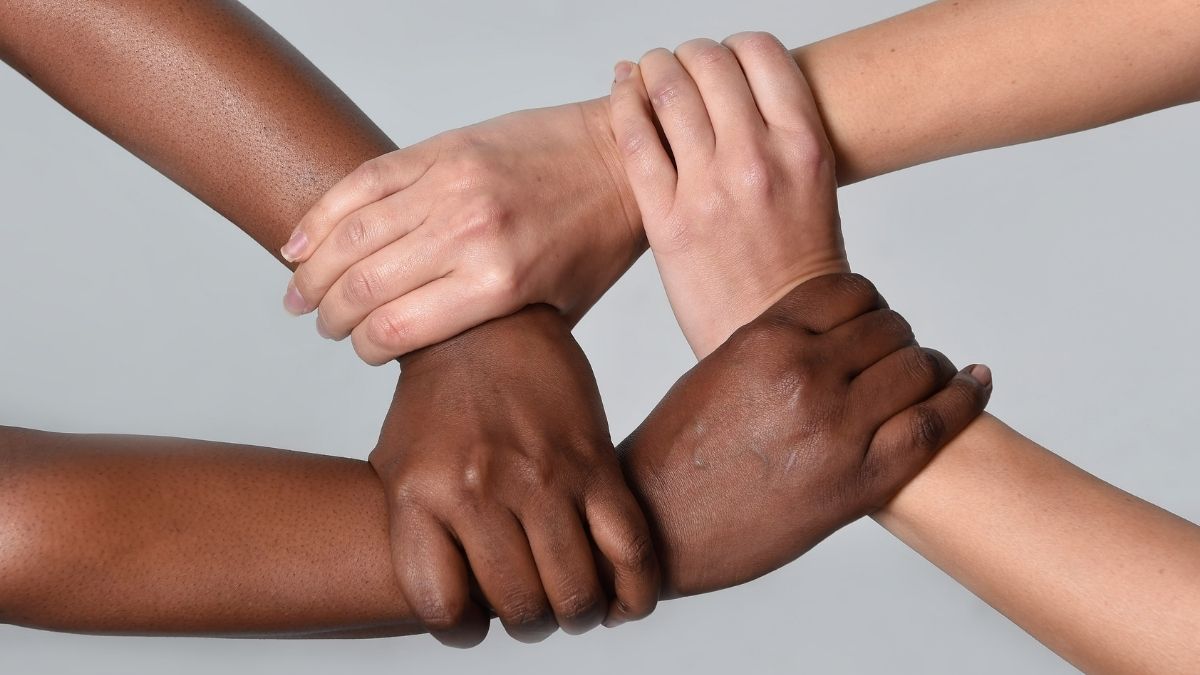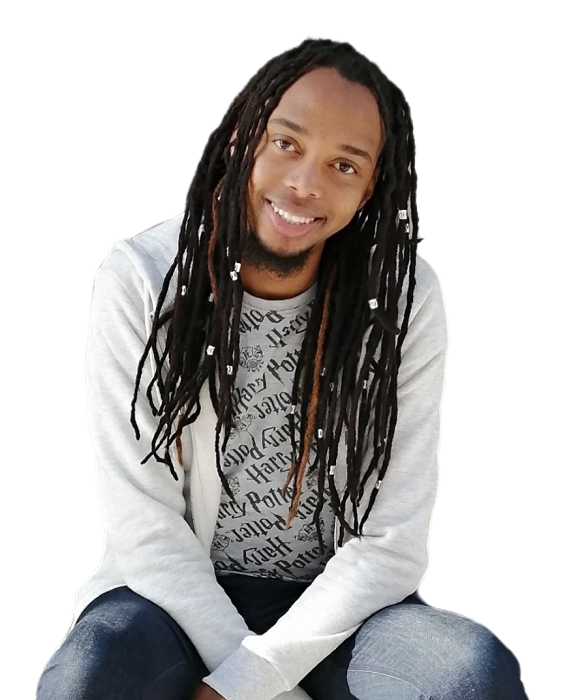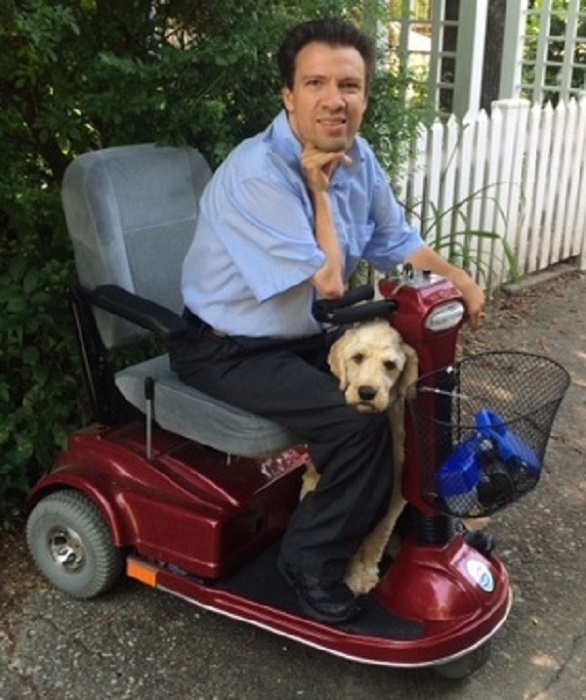
Loneliness and Inclusion – Dr Fiona Bateman, Director MA in Public Advocacy & Activism
The diversity of our class group each year is one of its strengths, with an exchange of ideas and experiences being central to the learning environment.
The different perspectives that students contribute are valuable for all concerned. Many students have been affected by the issues they are studying, belong to marginalised groups themselves, or have worked with organisations that are campaigning to bring about change.
All are keen to tell their stories and advocate effectively for their own rights and the rights of the communities they work with.
While the diversity of the students in this programme, and in the University as a whole, is something to celebrate, it is essential that the University acknowledges the responsibility that we have in supporting and enabling a positive experience for all students.
A growing internationalisation and diversity in the student body is something to celebrate, but alongside this, we need to focus on strategies of inclusion.
Loneliness can be a challenge, and there is no doubt that international students in particular can find it difficult to fit in and make friends. We need to develop more pro-active strategies to make students feel welcome and to integrate all students to our University.
One very serious concern that must be addressed is that of racism, and the University has to show leadership on this issue. It is our responsibility to ensure students’ safety and well-being in this regard. It should be a priority for the University to develop an Anti-Racism Statement, not alone for the campus, but to educate and engage the wider community.
With strategy and policy that demonstrate commitment to inclusion and respect, the University’s growing diversity can only be a positive development for everyone.
During the first semester, students of the MA in Public Advocacy and Activism make short advocacy films using their mobile phones. With zero resources, they can create very powerful stories and messages. Last year Patrick Miller’s film Kufungisisa (Thinking too much) addressed the subject of loneliness.
You can watch Patrick’s short film here: https://youtu.be/CXRFJIO4Bag

The Burden of Otherness Patrick Miller MA in Public Advocacy and Activism, 2020
In 2019, I was awarded an Irish Aid Fellowship, which gave me the opportunity to travel to Ireland to pursue a Master’s in Public Advocacy and Activism at NUI Galway. Before leaving Zimbabwe, I had the impression that as a queer individual coming from a predominantly homophobic country, Ireland would be “the land of the free” for me. The grass did seem greener until I got closer and saw that it was not as green as I thought it would be.
I have always joked that wherever I go, I am always the “other” in the room. During my time in Ireland, I felt the burden of my otherness to be so pervasive that it followed me in almost every space.
I must admit that sometimes it was all in my head, because I put myself under the pressure of always having to process everything being sent my way, either verbal or non-verbal cues, so that I was ready with a response.
The general election, and some of the rhetoric during the campaign, did not make it easy for me to completely be comfortable in certain spaces as a foreign national living in Ireland.
I found myself having to reflect more on nuances of conversations as the “other”, conversations in which, as the “other”, I was expected to be the knowledge bank of all things that spoke to my “otherness”, and always having to have an opinion on Africa, black people and homosexuality.
Coming from a community and racial minority group in Zimbabwe, where there is a growing number of high school drop-outs and being uneducated is a predominate stereotype, I felt that all I did would be used as a measuring stick for the community I belong to.
Due to this problematic line of thinking, I put myself under unnecessary pressure to be as close to perfect as possible, to always have it figured out, to always have an opinion on African issues broadly, and Zimbabwean issues specifically.
Throughout my studies, I had opportunities to interact with individuals outside academia who had interests in activism and advocacy.
Almost every time that I mentioned that I was Zimbabwean and a queer youth activist, my legal status in Ireland became a topic, usually coming from the presumption that I was in Ireland seeking international protection. I found it offensive. Nevertheless, beyond having discussions about it in class and with friends, I did not actively deal with it.
I cannot help but wonder if I missed the so-called “teachable moment”.
Be that as it may, one of the things I realised towards the end of my time in Ireland, was that it was okay for me to not answer some questions, to not have an opinion on certain Zimbabwean politics or issues affecting people of colour, and it was okay to be vocal about not being okay with some conversations regardless of how well-meaning they might seem.
[1] Coloureds are a multiracial ethnic group native to Southern Africa who have ancestry from more than one of the various populations inhabiting the region, including Khoisan, Bantu, Whites, Austronesian, East Asian or South Asian. In Zimbabwe and to a lesser extent Zambia, the term Coloured or Goffal was used to refer to people of mixed race. Most are descended from mixed African and British, or African and Indian, progenitors. Some Coloured families descended from Cape Coloured migrants from South Africa who had children with local women.

Kevin Gadsey Disability Advocate MA in Public Advocacy & Activism 2014
“You’re moving to Galway? You’ll never get around that old town in your scooter wheelchair!” That was the incredulous response I received from friends, over and over again, in the months before I began my MA.
Friends told me exaggerated tales of non-existent kerb cuts, tiny doorways and cobblestone sidewalks that would shake the wheels off my scooter wheelchair.
Knowing that I had successfully survived a decade of Alaskan blizzards while living on the side of a mountain gave me the willingness to “jump the pond” to live in Galway for a year in 2013 – one of the best decisions I ever made.
I did heed my friends’ warnings, though, and moved a month ahead of the beginning of the programme. I’m glad I did, not because of accessibility issues, but because I was able to enjoy a bit of an Irish summer before the cold winds blew down Quay Street. I also learned how to use the take-your-life-in-your-hands roundabout crosswalks.
The extra time also allowed my American ears to adjust to European accents and unique Irishisms like craic and legend.
More nights than not, you’d find me sitting on my scooter on the cobblestone of Quay Street with my dog. I would read my textbooks while listening to the street musicians and watching the younger college students party like there was no tomorrow.
NUI Galway campus accessibility was perfect – except for those 15 harrowing minutes I spent trapped inside a campus elevator just an hour before my graduation ceremony.
Galway’s accessibility was really good overall, and it seemed like it had improved immensely in the previous decade. I did have to jump a few kerbs here and there and eat outside several inaccessible restaurants. But many of the large van taxis had manual ramps that worked well when I ran out of battery power or got caught in a storm – better accessibility than in the US.
Wheelchair accessible housing was the weak link in Galway. I had to rent an entire home then sublet the upstairs bedrooms while converting the giant living room into my bedroom studio.
However, my elderly neighbours welcomed me and I immediately felt at home in the neighbourhood just south of campus. The nearby convenience store and coffee shop took care of me, and I wrote quite a few papers at pubs, coffee shops and even McDonald’s in the middle of the night when my housemates were partying in the kitchen with their friends!
Even though Galway is known as a party town, I found the culture and heritage to be so deep and unique. Whatever your programme of choice is, you’ll find excellence at NUI Galway.
One bit of advice before you go (and you should go) – pick up a copy of Ireland: A Novel by Frank Delaney. It tells the story of Ireland through the eyes of a 1950’s wandering storyteller from the days of legend up to modern historical experiences. I read that book during the 2013 holiday break while downtown Galway flooded beneath waves and storms.
As an outsider, I understood so much more of the Irish experience from that book, especially when my fellow students flipped out one day at hearing an English voiceover on an Irish documentary. The subtle dialect difference escaped my Americans ears, but the Irish students knew they wanted no part of the Brits telling them to obey the rules of the road.
Because of Delaney’s novel, I truly understood the importance of those emotions, and a lot more of my partial Irish-American heritage.